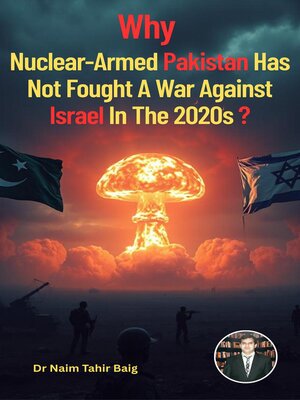Why Nuclear-Armed Pakistan Has Not Fought a War Against Israel in the 2020s?
ebook
By Dr Naim Tahir Baig

Sign up to save your library
With an OverDrive account, you can save your favorite libraries for at-a-glance information about availability. Find out more about OverDrive accounts.
Find this title in Libby, the library reading app by OverDrive.



Search for a digital library with this title
Title found at these libraries:
| Library Name | Distance |
|---|---|
| Loading... |
Book Description
Why Nuclear-Armed Pakistan Has Not Fought a War Against Israel in the 2020s? offers a comprehensive analysis of the complex geopolitical dynamics that have shaped Pakistan's strategic posture toward Israel during a period of heightened tensions in the Middle East. Dr. Naim Tahir Baig, a renowned expert in international relations and nuclear deterrence theory, examines the multifaceted factors that have led Pakistan—despite possessing nuclear capabilities and strong religious and cultural ties to the Palestinian cause—to maintain strategic restraint rather than direct military confrontation with Israel.
The book delves into the sophisticated interplay of international alliances, economic dependencies, military strategic constraints, and diplomatic alternatives that have influenced Pakistan's policy choices. Drawing on extensive research and first-hand diplomatic insights, Dr. Baig presents a nuanced understanding of nuclear deterrence in practice, challenging simplistic narratives about Islamic solidarity and military solutions to complex international disputes.
This timely scholarly work provides valuable insights for policymakers, academics, and students of international relations, offering a window into the rational calculations that guide nuclear-armed states' behavior in the contemporary global order. The analysis moves beyond ideological framings to present a clear-eyed assessment of Pakistan's national interests and strategic culture, while illuminating broader patterns in how regional nuclear powers navigate conflicts in the 21st century.







